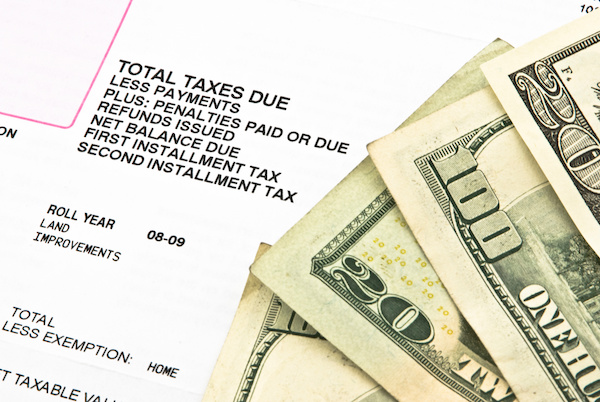Two Recent Supreme Court Consumer Cases Affect Seniors

In a rare demonstration of solidarity the Justices of the United States Supreme Court recently joined in a unanimous decision which ultimately favored an elderly woman regarding a tax sale of her property. The case was at least the second in the past few months that favored private rights under the U.S. Constitution and laws as opposed to state and local government. The other which I previously described in a column in June, 2023 allowed a private federal right of action regarding certain claims against a government operated nursing facility.
The tax sale case, Tyler v. Hennepin County, Minnesota, decided May 23, 2023, answered the question whether, where a taxpayer failed to pay taxes for a time and the property ultimately went to tax sale, could the government claim all of the proceeds of the sale or was it limited to the amount of the delinquent taxes plus interest and penalties. Not all states follow this procedure by the way and Pennsylvania does not. However, in the States where the government takes all of the proceeds of sale, this case is significant.
By comparison, in the prior case, Talevski, the question there was whether there was a private right of action for individuals to sue in federal court where a government operated Medicaid certified nursing home failed to comply with federal minimum standards of care under the Federal Nursing Home Reform Act.
Although the Tyler and the Talevski cases are very different, they deal with common issues that affect seniors – the loss of property, in Tyler a condominium unit, where the party was unable to come up with funds to save it but just let it go and in Talevski mistreatment in violation of federal law in a nursing home. Unfortunately privately owned and operated nursing homes were not covered by the decision.
The Tyler tax sale case, originated as follows:
“Geraldine Tyler is 94 years old. In 1999, she bought a one-bedroom condominium in Minneapolis and lived alone there for more than a decade. But as Tyler aged, she and her family decided that she would be safer in a senior community, so they moved her to one in 2010. Nobody paid the property taxes on the condo in Tyler’s absence and, by 2015, it had accumulated about $2,300 in unpaid taxes and $13,000 in interest and penalties. Acting under Minnesota’s forfeiture procedures, Hennepin County seized the condo and sold it for $40,000, extinguishing the $15,000 debt. App.5. The County kept the remaining $25,000 for its own use…” id.
The case was dismissed at the lower level which was affirmed by the Eighth Circuit Court of Appeals. The U.S. Supreme Court reversed.
Minnesota law would allow the taking of all the equity in the property, not just what was owed. Was this a violation of the “takings clause” under the Fifth and Fourteenth Amendments to the U.S. Constitution? The Court found it was.
What is the “Takings Clause?” The Fourteenth Amendment to the U.S. Constitution states: “No person shall…be deprived of life, liberty or property, without due process of law; nor shall private property be taken for public use, without just compensation…” The Court found that taking the value above the amount of the debt was a taking.
Does the case propose that property owners should be forgiven for failure to pay their property taxes? Absolutely not! Geraldine Tyler still was required to pay taxes along with the full amount of interest and penalties which were substantial. However, the case does bring to light concerns experienced especially by some senior property owners who are no longer capable of paying their taxes. Here are some ideas.
Governments typically wait for a considerable period of time before executing against a property. During this time family, trusted friends and caretakers should keep up with status of taxes and take advantage of programs that could help.
Strategies might be worked out regarding the equity in the property with the assistance of knowledgeable elder law attorneys and other professionals.
Pennsylvania has a property tax rebate program for eligible Pennsylvanians age 65 and older, widows and widowers age 50 and older and people with disabilities age 18 and older. The income limit for homeowners is $35,000 per year and $15,000 annually for renters. Half of Social Security income is excluded from the calculations. It is important to act before it is too late.
About the Author Janet Colliton
Esquire, Colliton Law Associates, P.C. Janet Colliton has practiced law for over 38 years, 37 of them in Chester County, Pennsylvania, a suburb of Philadelphia. Her practice, Colliton Law Associates, PC, is limited to elder law, Medicaid, including advice, applications and appeals, and other benefits planning including Veterans benefits, life care and special needs planning, guardianships, retirement, and estate planning and administration.
